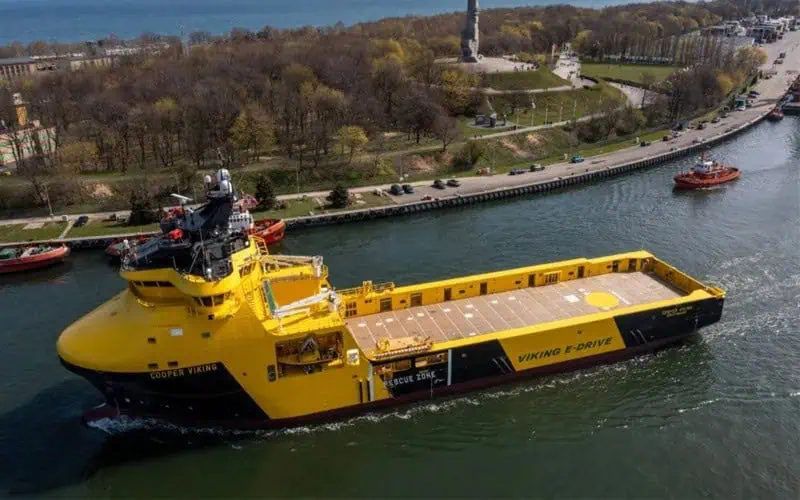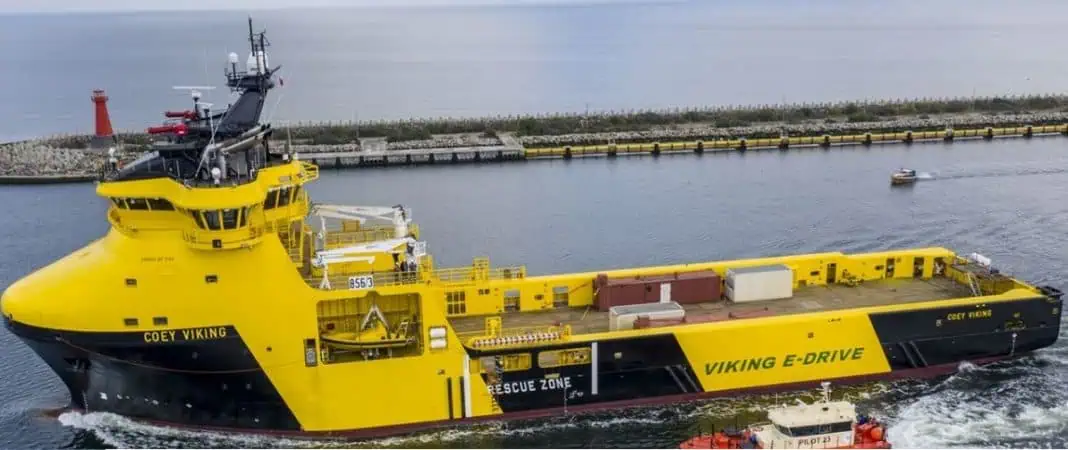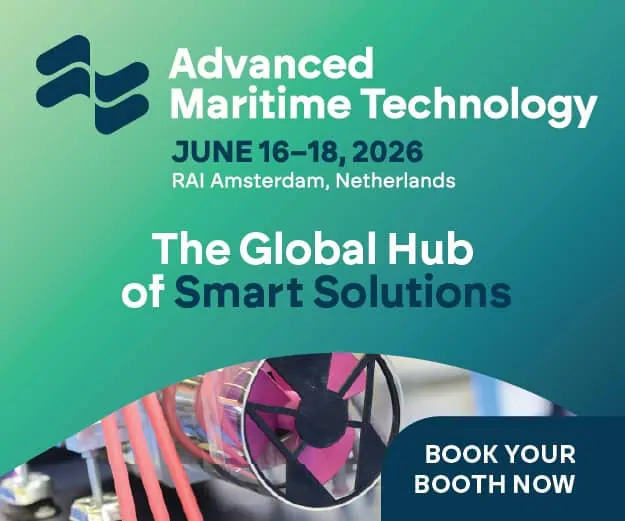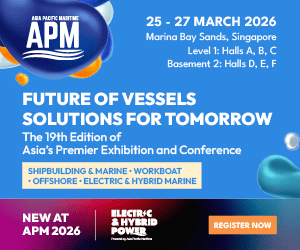In the highly competitive oil & gas market, still suffering from oversupply and recovering from the oil price crash of a few years ago, it is essential that platform support vessels (PSVs) are as attractive to charterers as possible. For those operating in the highly regulated North Sea, this means high fuel efficiency and low emissions to comply with legislation and satisfy the often even stricter requirements of oil and gas producers. For two LNG-powered PSVs operated by Sweden’s Viking Supply Ships, this meant upgrading to a hybrid battery power supply system.
When oil prices fell dramatically in 2015–16 it led to a decrease in production and a reduction in the demand for offshore vessels of all types. The crisis in the offshore industry came hot on the heels of a boom period, resulting in an oversupply of vessels, meaning that many that were already under construction were launched at a time when there was no demand for their services. In just such a case, two state-of-the-art LNG-powered PSVs spent some time standing idle in the yard before market conditions improved enough for an owner to pick them up.
Designed for highly efficient, sustainable operations
PSVs transport cargo to and from offshore oil and & gas platforms, and the two vessels in question had been designed to work in challenging sea conditions and in areas with some of the world’s strictest emissions regulations. Built at the Remontowa Shipbuilding yard in Gdansk, Poland they feature a set of Wärtsilä 34 and 20 dual-fuel engines and the Wärtsilä LNGPac LNG storage and handling system, allowing them to operate primarily on the low-carbon fuel.
The electrical and automation technologies, including a complete four-split Wärtsilä Low Loss Concept (LLC) solution, create a highly redundant electric power distribution system that improves energy efficiency by as much as 4%, reduces electrical losses leading to greater fuel economy and secures the level of reliability needed for continuous operation. With the various Wärtsilä systems integrated into a total solution, and with an optimised hull design, the vessels benefit from lower fuel consumption, reduced fuel costs and lower exhaust emission levels compared to vessels running on conventional marine fuel.”
“Having a single interface with the OEM on the project helped us tremendously because we were able to perform our work in a highly efficient way and take advantage of support from Wärtsilä’s local technicians. Without this close collaboration with Wärtsilä it would not have been possible to bring the vessels up to the exacting standards of the customer and achieve so much in such a short space of time.
– Mirek Jasinski, Commercial Director, Remontowa Shipbuilding
Some hybrid icing on the cake
With all of these elements in place there’s no question that the two PSVs – now named the Coey Viking and Cooper Viking – were already a very attractive package. But as the market had become even more competitive in the years since they were built, the new operator, Viking Supply Ships AS, decided to add an additional energy-efficiency and environmental solution – the Wärtsilä HY, a state-of-the-art hybrid battery power supply system – to ensure that the vessels meet future environmental requirements and are more attractive to charterers.
Integrating the Wärtsilä HY with the vessels’ dual-fuel engines enables significant efficiency improvements by enabling the main engine to be run at optimal load and absorb many of the load fluctuations. By increasing the power redundancy, the system allows the engine to operate closer to its optimum design point where it has highest efficiency and lowest emissions. The hybrid system also enables lower fuel consumption, especially in dynamic positioning operations, and longer intervals between maintenance to enable a higher rate of vessel utilisation.
However, a hybrid system is only as good as the software at its core, and this is where Wärtsilä’s world-class energy management capabilities really came into their own. Working with Wärtsilä made life easier for shipbuilder Remontowa, who benefitted from having the equipment, interfaces, software and project management handled by one expert supplier. This brings peace of mind in the form of a single efficient, streamlined and sustainable solution that is easier to manage, maintain and enhance. ”

Shore connection and remote maintenance agreement also included
In addition to the hybrid integration, Viking also specified a Wärtsilä shore connection, which is a smart way of complying with increasingly strict noise and air pollution emission requirements while in port. Using an ICE/ICO/IEEE 80005-1 compliant onshore power supply system means operators can access a stable supply of electrical power from the local grid while the vessel’s engines are not running. This completely eliminates exhaust emissions and noise pollution and allows the onboard batteries to be recharged when required.
To ensure their two new vessels continued to operate optimally, Viking also signed a five-year Lifecycle Service Agreement that includes the Wärtsilä Expert Insight service. The asset diagnostics and anomaly detection capabilities provided by the service mean that experts at Wärtsilä’s Expertise Centres can spot any potential issue before it becomes a problem and liaise with the crew to provide actionable recommendations and guidance. Because of the vessels’ relatively unpredictable schedules and working locations, and the fact that the dual-fuel engines were new to the crews, on-demand remote operational and technical support were also included in the agreement. This provides the crews with help and support with settings, readings and troubleshooting whenever and wherever they need it.”
“While the vessels were already highly fuel efficient and met with regulations, we wanted to future-proof them to ensure that they would remain compliant and competitive throughout their entire lifespan. Wärtsilä’s hybrid solution and shore connection technology was the ideal choice to help us achieve this objective.
– Jan-Erik Larsson, Site Manager, Viking Supply Ships AS
A win-win for yard and operator
The upgrade project was unusual because most of the original hardware had already been installed. Together with the yard, Wärtsilä devised a process that enabled the remainder of the work, and the installation of the Wärtsilä HY system, to be carried out as quickly and efficiently as possible with the support of local Wärtsilä technicians. This support was invaluable as most of the inspection and commissioning work was subject to strict COVID-related restrictions and travel was difficult or impossible.
The end result was that Viking Supply Ships took delivery of two state-of-the-art vessels with the flexibility, fuel efficiency and low emissions that charterers working in the oil and gas sector demand today. As the sector continues to seek solutions that improve efficiency and sustainability across its entire value chain and regulations continue to tighten, the Coey Viking and Cooper Viking are all set to enjoy a long and profitable service life.”













